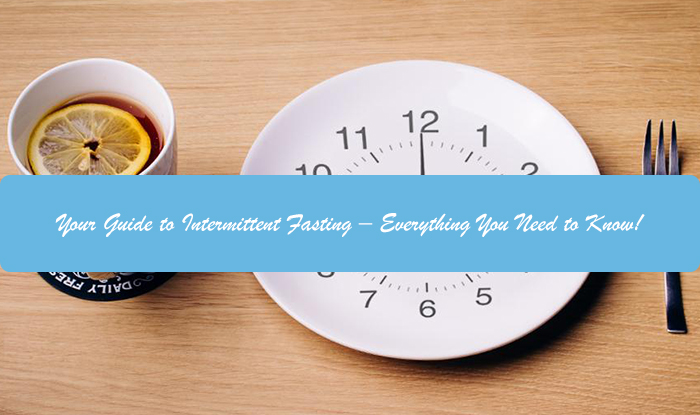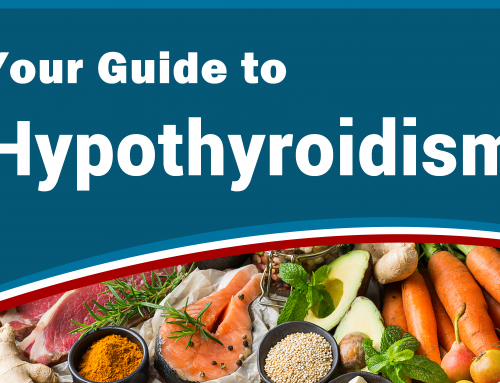Most of you must have been following fasting as a part of your spiritual, religious, and cultural traditions. Born out of this, is a new way of fasting – IF or Intermittent Fasting! This is something really very different and that your ancestors used to follow in the era when there was no refrigeration, microwaves, food delivery, and electricity.
If you wish to know everything about intermittent fasting, then read this post to explore every bit of it!
What is Intermittent Fasting?
It is a kind of eating pattern where you cycle between abstaining from food and sessions of eating food. You don’t have to restrict to calories or food. The focus is on timing. For this reason, it is also known as time-restricted eating. You simply have to condense your eating hours into a shorter time window.
Why You Must Go for Intermittent Fasting?
Our process of digestion is highly energy-intensive and it is not meant to be ‘on’ all the time. When we allow our digestive system to rest for 12-16 hours in a 24-hour session, it is able to work to remove metabolic toxins and junk, which develop in our body over time.
When we fast, inflammation within our body reduces down and our body initiates autophagy, which is a vital cleansing process that breaks down and revamps damaged cellular elements. when human growth hormone increases, it helps to burn fat, increase muscle, cartilage, and bone growth, and restores muscle mass. The levels of adrenaline, as well as norepinephrine, also increase that release energy while burning fat. The decreased insulin levels allow to burn fat rather than storing it, and lastly, leptin and ghrelin levels are normalized.
Due to activation of such processes during fasting, it is possible for us to experience numerous health benefits like stable energy, fat loss, reduction in oxidative stress, enhanced cognitive function, reduction, and prevention of degenerative ailments in the brain, slowed aging, enhanced longevity, and more.
You see, intermittent fasting, therefore, can be a great way to reduce fat. It is because it trains your body to abstain from food and prepares it to burn stored fat and use it, rather than relying on sugars.
Who All Can Go For Intermittent Fasting?
If you want to improve your health condition and become a better fat burner then you can be a good candidate for intermittent fasting.
Here are some suggested pre-requisites for intermittent fasting:
- You are consuming a well-balanced healthy diet including fat, protein, and fiber.
- You can consume three meals a day and no snacks without experiencing hypoglycemic symptoms like blurred vision, light-headedness, confusion, energy dips, getting angry, and more.
- You can manage stress and have not to experience adrenal dysregulation.
- You are getting sufficient sleep of 7-9 hours.
- You exercise regularly.
- Being a woman, she does not experience hormone imbalances like thyroid, sex hormones, adrenals, and others.
- You are not pregnant or breastfeeding.
- You are not underweight or experiencing an eating disorder.
- You don’t experience a chronic renal ailment.
Some Important Facts About Fasting
- Intermittent fasting is not about starvation. The aim of this fasting is not to restrict calorie, but to restrict time.
- When you do any kind of fasting, your body restores muscle mass and breaks down only fat tissue to meet the energy requirements.
- Finally, intermittent fasting will not slow down your metabolism. It’s true that staying without food can reduce the metabolic rate, short-term fasting maintains body health as well as metabolic rate.
The Intermittent Fasting Approach
There are numerous approaches to intermittent fasting. Here I have mentioned some of the options that might work best for you.
- 12-Hour Fast – This is the recommended plan for those who are just starting with intermittent fasting. It is the safest and easiest approach to follow as most of the people don’t have issues fasting for 12-hours. You can decide a suitable time for dinner, like 8 p.m. and do breakfast exactly after 12-hours, which is 8 a.m. In between, you don’t have to eat anything, but you can always consume liquids.
- Alternate-Day Fasting – This is another plan of fasting that involves fasting one day where you consume only 25% of the normal caloric value excluding starches or sugar. On an alternate day, you can eat whatever you want but not junk or processed food.
- 16/8 Cycling – This plan is based on the same strategy as the 12-hour fasting plan. But here, you just have to limit the eating window to eight hours and extend fasting to sixteen. Though it might be quite challenging as compared to the 12-hour fasting pattern, then the results are also profound. In this plan, you can eat dinner by 8 p.m. and have lunch by 12 in the noon to create a 16-hour daily fasting cycle. You can set a time frame as per your preference.
- The Warrior Diet – This plan involves consuming small amounts of raw veggies and fruits during the day and then consuming one big meal at night.
- 5:2 Plan – Just like the alternate day fasting, this plan allows to eat normally five days a week and limiting the calorie intake to 500-600 calories on the remaining two days of the week.
- Eat When Hunger Ensures Naturally – As per this approach if you are not feeling hungry in the morning then don’t eat breakfast. Similarly, eat dinner only if you are hungry. Don’t eat just because it is the time. This way, you can decide to fast and whenever you eat, avoid consuming high-calorie food.
Tips To Experience Hassle-Free and Safe Intermittent Fasting
- Start Slow – You can start slow by finishing your evening meal 3 hours before going to bed. If you can’t follow the 12 hours fast at once, aim for a fast of shorter duration for the initial weeks.
- Gradually increase your fasting window to 13 hours for 2 weeks. Once it feels easy, you can extend the duration.
- If you are hungry, you can take a few deep breaths. Also, drink some water when you are extremely hungry. If still not feeling better then go out for a walk.
To Sum Up
People having consistency with the IF schedules tend to get more success with it as compared to those with erratic schedules. It is because your body adjusts to a routine, which you offer it. Give your hormones enough time to adapt to the new schedule.
Also, you can try to different intermittent fasting patterns and identify what works best for you and the schedule works best for you. It takes time for the body to get used to this way of eating. Once your body is trained to burn fat, you will be able to get all the benefits of intermittent fasting.
Hope this post is helpful for you to start with an intermittent fasting plan that you can adapt to your health and lifestyle goals!








